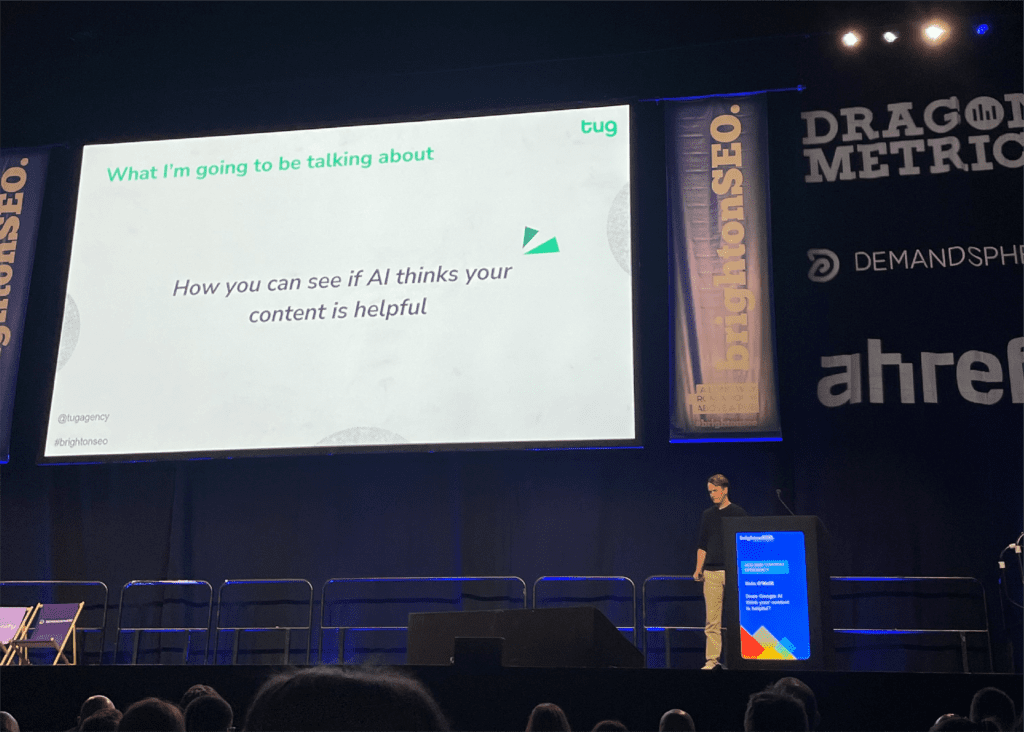Tug’s Latest brightonSEO Talk: Does Google AI Think Your Content is Helpful?
Last week at brightonSEO, Tug’s CTO Eoin O’Neill took the stage to explore how we can determine if Google AI thinks our content is helpful.
Eoin has been in the industry for over 20 years, starting his career back in 2003 when SEO was a relatively new concept. Since then, he’s seen the digital landscape shift dramatically, and drew upon his wealth of industry experience to tell us how an LLM-driven search algorithm might interpret content helpfulness.
Navigating the AI Landscape
When we think of AI, a few things come to mind, the main one likely being ChatGPT. But, as Eoin pointed out, we need to think outside of the classic AI topics – like using ChatGPT to write content and what search engine results pages will look like in the future.
AI can be a largely misunderstood and mystified concept, which can make it feel like there is less control now as SEOs. But, many of the principles we know lead to SEO success are the same, it’s just the end search experience that’s changing.
Machine learning is still at the heart of what AI really is, as Large Language Models (LLMs) like GPT-4 and Google’s Gemini are essentially a massive aggregation and synthesis of training data.
How AI Affects Search
In order to ensure our content is deemed as helpful by Google, we first need to understand how Gemini changes search results. Instead of keyword-based search, Gemini uses semantic understanding to retrieve contextually relevant information. It does this by drawing on its LLM understanding of a topic to comprehend user intent and prioritise content accordingly.
How Can We Harness the Gemini API?
Mimicking how an LLM-driven algorithm may interpret your content is key to optimising it.
At Tug, we developed the Helpful Content Tool to optimise our clients’ content to improve visibility, traffic and revenue. This tool uses the same LLM technology to mirror Google’s approach to assessing helpfulness – allowing us to identify content that needs to be optimised in line with how AI search algorithms reward helpfulness with greater search visibility.
Auditing and optimising our clients’ content with the Helpful Content Tool has led to improved search positions, sessions and revenue.
Key Takeaways for SEO Success in Today’s Landscape
Although he’s given us plenty of information on how to upgrade our content optimisation, we asked Eoin for his number one takeaway:
“Think like an SEO. Interrogate and problem solve when it comes to AI,” he said.
Here are some more top tips for taking your content to the next level:
- Don’t get too distracted by generative AI, it’s important to still think like SEOs
- Try to mimic how an LLM-driven algorithm may interpret your content
- Implement this at scale so you can efficiently manage your content process
- Apply a calculated helpful metric – like the Helpful Content Tool – to provide correlated evidence of performance impact
If you’re ready to take your content optimisation to the next level, reach out to our Tug team.



